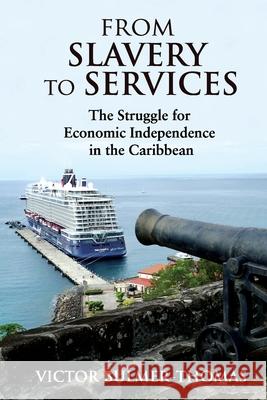From Slavery to Services: The Struggle for Economic Independence in the Caribbean: The Struggle for Economic Independence in the Caribbean » książka
From Slavery to Services: The Struggle for Economic Independence in the Caribbean: The Struggle for Economic Independence in the Caribbean
ISBN-13: 9789766379872 / Angielski / Miękka / 2021 / 442 str.
From Slavery to Services: The Struggle for Economic Independence in the Caribbean: The Struggle for Economic Independence in the Caribbean
ISBN-13: 9789766379872 / Angielski / Miękka / 2021 / 442 str.
(netto: 275,70 VAT: 5%)
Najniższa cena z 30 dni: 271,35 zł
ok. 13-18 dni roboczych.
Darmowa dostawa!
Foreign trade has always been crucial to the economic development of the Caribbean. Slavery was introduced to the Caribbean by Europeans in order to make commodity export profitable. An adequate supply of (low cost, forced) labour was a necessary condition for profitability but it was not sufficient, and as market conditions changed, Caribbean countries had to shift resources from one export to another. In 1820 sugar accounted for 50% of merchandise exports but fell below 40% at the end of the century and below 20% by the 1980s. At first, countries simply shifted resources from one exportable commodity to another but none remained permanently profitable. Manufactured exports became important for a few countries after the Second World War, especially in the assembly industry, but it was the rise in exports of services that transformed the outlook for the Caribbean. Starting with tourism before spreading to other activities, such as finance, insurance, health, education and transport, the export of services is now much more important than the export of goods in most Caribbean countries and this has helped to raise living standards considerably. The Caribbean has benefited greatly from service exports, but they are not a panacea. Just as in the case of commodity exports, there is still a constant need for diversification as a result of changes in market conditions. In From Slavery to Services, Victor Bulmer Thomas builds on his earlier work, The Economic History of the Caribbean, and continues his exploration of the economic history of the entire Caribbean. Divided into four parts covering the four language areas of the Caribbean - English, Spanish, French and Dutch - Bulmer-Thomas presents a comprehensive analysis of the entire region and its constant need to adapt to changing external conditions which makes the struggle for economic independence a permanent one.











